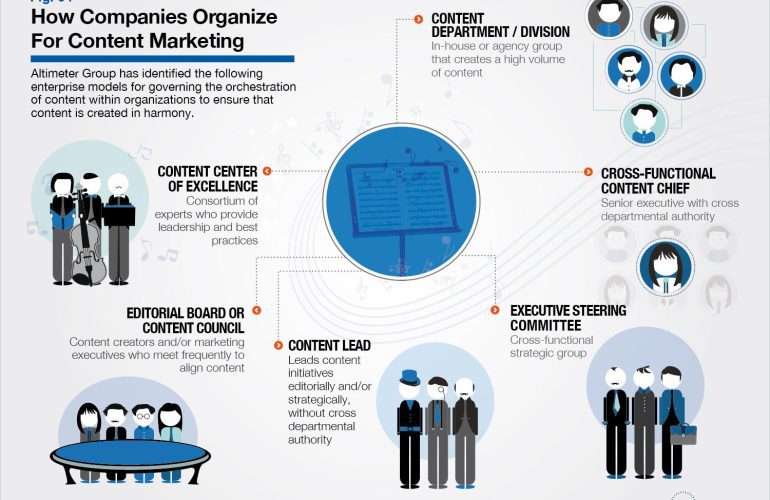In today’s digital landscape, establishing a robust online presence is not merely an option but a necessity for businesses aiming to thrive and succeed. As consumer behavior increasingly shifts towards online interactions, companies must adapt by crafting comprehensive strategies that resonate with their target audience and enhance their brand visibility. This article delves into the fundamental components of building an effective online presence, exploring proven strategies that leverage modern technology and digital marketing techniques. From optimizing website functionality to harnessing the power of social media, we will examine actionable insights that can propel businesses forward in a competitive marketplace. Emphasizing the importance of a strategic approach, we will equip you with the tools and knowledge needed to navigate the complexities of the digital realm and ultimately drive sustainable business growth.
Table of Contents
- Understanding the Importance of Digital Branding in Todays Market
- Leveraging Social Media Platforms for Enhanced Customer Engagement
- Utilizing Search Engine Optimization to Drive Organic Traffic
- Implementing Data Analytics for Continuous Improvement and Growth
- Key Takeaways
Understanding the Importance of Digital Branding in Todays Market
In today’s competitive landscape, digital branding has become a cornerstone for businesses seeking to thrive. Unlike traditional branding, which often relies on physical presence and print media, digital branding leverages online platforms to foster connection and engagement with consumers. A well-executed digital branding strategy not only enhances visibility but also builds trust and credibility. Key components of successful digital branding include:
- Consistent Messaging: Ensure uniformity in the tone and voice across all digital channels.
- Visual Identity: Create a recognizable and appealing logo, color scheme, and design layout.
- Engaging Content: Develop high-quality, relevant content that resonates with your target audience.
- Social Media Presence: Utilize various platforms to engage, inform, and connect with your audience.
A robust online presence not only drives customer engagement but also influences purchasing decisions. With consumers increasingly relying on online reviews and social proof, a strong digital identity can differentiate a brand from its competitors. Tracking performance metrics, such as brand awareness and user engagement rates, can help refine strategies for ongoing improvement. Companies should regularly evaluate their digital branding efforts using metrics like:
| Metric | Importance |
|---|---|
| Brand Awareness | Measures visibility and recognition among target audiences. |
| Engagement Rate | Indicates how well the content resonates with the audience. |
| Conversion Rate | Tracks the effectiveness of branding in generating leads and sales. |
Leveraging Social Media Platforms for Enhanced Customer Engagement
In today’s digital landscape, social media platforms serve as pivotal avenues for brands to connect with their customers, offering a unique blend of accessibility and interaction. By creating engaging and authentic content, businesses can foster a community around their brand. To effectively enhance customer engagement, consider the following tactics:
- Active Listening: Monitor conversations and feedback across platforms to better understand customer needs and pain points.
- Consistent Branding: Maintain a cohesive voice and style that aligns with your brand identity across all social media channels.
- Interactive Content: Use polls, Q&As, and live videos to encourage direct interactions and feedback.
- Personalization: Tailor content and responses based on customer preferences and behaviors to create a more personalized experience.
Furthermore, analyzing engagement metrics can significantly inform your strategy. By assessing which types of posts generate the most interaction, brands can refine their social media approach. Here’s a sample table illustrating the effectiveness of different post types:
| Post Type | Engagement Rate (%) | Best Time to Post |
|---|---|---|
| Videos | 60% | Evenings |
| Polls | 45% | Afternoons |
| Images | 30% | Mornings |
| Text Updates | 15% | Anytime |
Utilizing Search Engine Optimization to Drive Organic Traffic
To effectively leverage search engine optimization, businesses must prioritize establishing a comprehensive strategy that aligns with their overall marketing goals. Keyword research serves as the foundation of any successful SEO campaign, allowing companies to identify the phrases and terms their target audience is actively searching for. By optimizing website content, including titles, headings, and meta descriptions, businesses can enhance visibility in search engine results pages (SERPs). Additionally, ensuring high-quality backlinks from reputable sources can significantly boost a site’s authority, further elevating its rankings. Key activities to consider include:
- Conducting thorough keyword analysis
- Creating valuable and relevant content
- Optimizing page load speeds
- Utilizing mobile-friendly design
To track the effectiveness of SEO efforts, it is essential to analyze performance metrics regularly. Tools such as Google Analytics can provide insights into organic traffic trends and user behavior, enabling businesses to refine their strategies continuously. Here’s a simplified comparison of key metrics to monitor:
| Metric | Purpose |
|---|---|
| Organic Traffic | Measures the number of visitors from search engines |
| Bounce Rate | Indicates the percentage of visitors leaving after viewing one page |
| Conversion Rate | Tracks the percentage of users completing a desired action |
| Page Load Speed | Affects user experience and search rankings |
Implementing Data Analytics for Continuous Improvement and Growth
Leveraging data analytics is essential for businesses aiming to foster continuous improvement and drive growth in an increasingly digital landscape. By collecting and analyzing customer data, organizations can identify behavior patterns, preferences, and trends that directly inform their decision-making processes. Implementing analytics allows businesses to monitor key performance indicators (KPIs), optimize marketing campaigns, and tailor products or services to meet customer needs effectively. Utilizing tools such as customer relationship management (CRM) systems and web analytics platforms can provide actionable insights that help in targeting the right audience and enhancing user engagement.
Furthermore, regular data evaluation facilitates iterative processes that refine strategies and boost operational efficiencies. To create a culture of data-driven decision-making, businesses should consider the following approaches:
- Invest in Training: Equip teams with the necessary skills to analyze and interpret data effectively.
- Set Clear Goals: Define specific, measurable objectives to gauge the impact of analytics on performance.
- Utilize Visualization Tools: Implement dashboards and visual reports to simplify data interpretation.
Creating a feedback loop enhances the ability to adapt strategies quickly. The table below outlines essential aspects to consider for a successful data analytics implementation:
| Aspect | Description |
|---|---|
| Data Collection | Gather quantitative and qualitative data from various sources. |
| Analysis Methodology | Choose appropriate analytical methods for data evaluation. |
| Implementation | Apply insights to refine business strategies and operations. |
| Measurement | Continuously track performance against established KPIs. |
Key Takeaways
establishing a robust online presence is not merely an option but a necessity for businesses aspiring to thrive in today’s digital landscape. The strategies outlined in this article—ranging from SEO optimization and content marketing to social media engagement and data analytics—serve as fundamental pillars that can reinforce your brand’s visibility and credibility. As consumer behaviors continue to evolve, it is imperative for companies to remain agile and responsive to the changing dynamics of the online marketplace. By investing time and resources into cultivating a strong digital footprint, businesses can foster meaningful connections with their audience, enhance customer loyalty, and ultimately drive sustainable growth. Embrace these strategies and position your organization not just to survive, but to excel in an increasingly competitive environment. The future is digital, and your online presence is the gateway to success.






